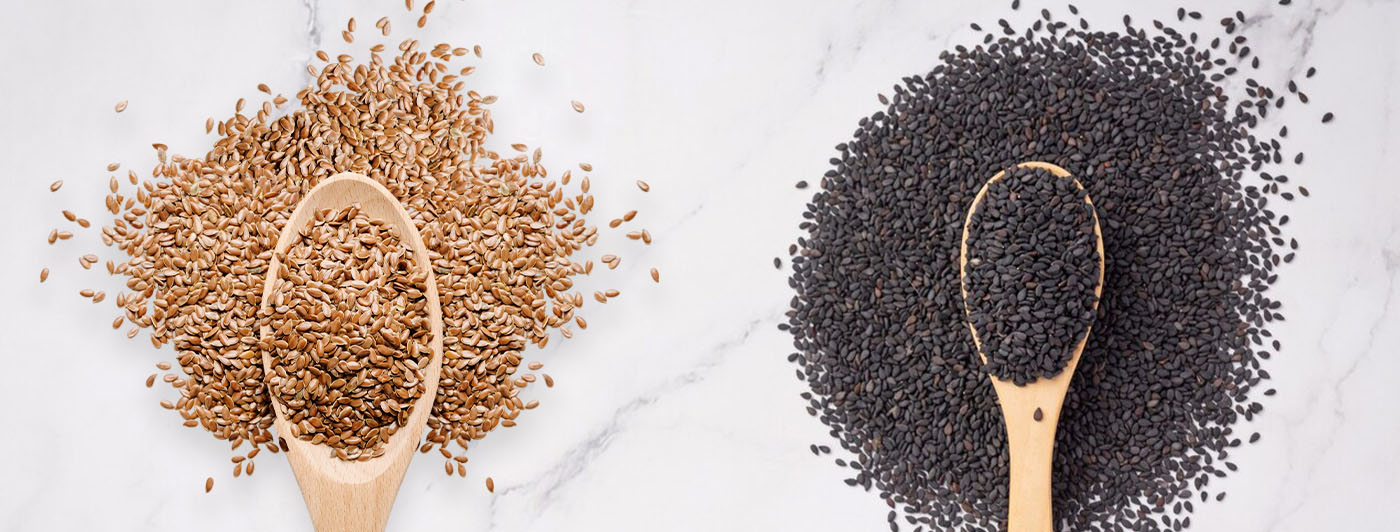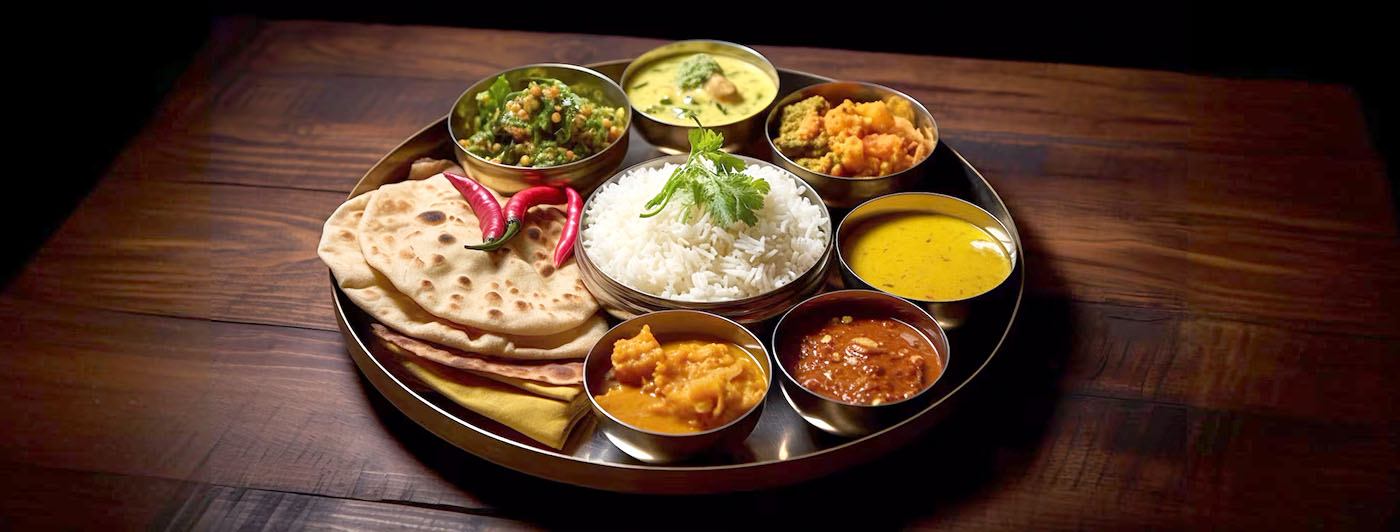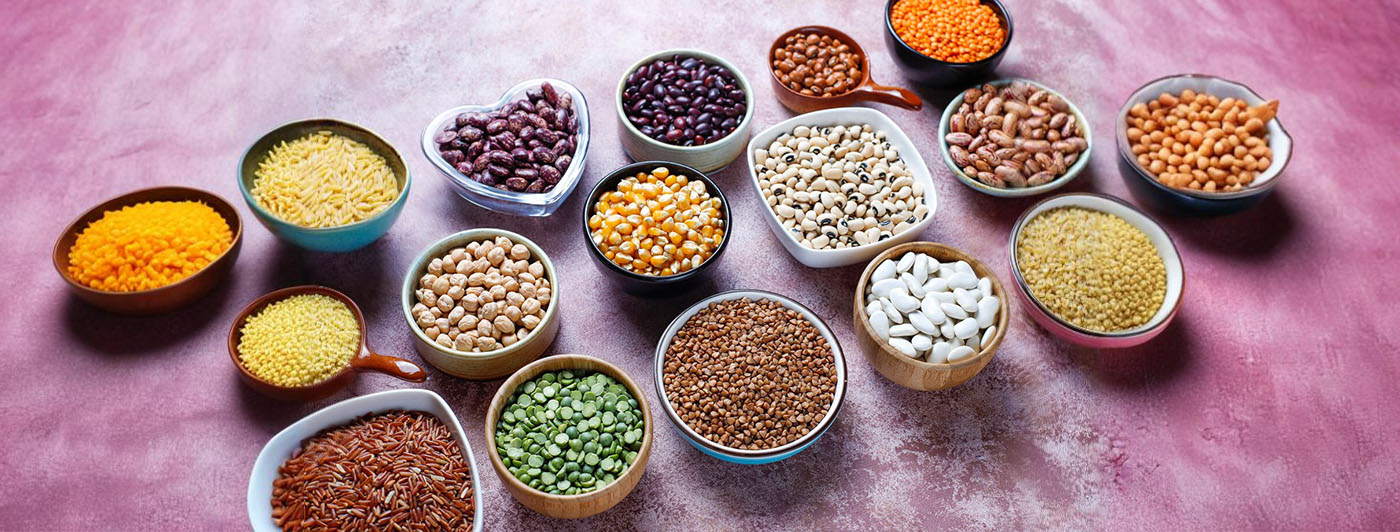In the world of nutrition and wellness, few debates are as popular—and as confusing—as chia seeds vs flax seeds. These tiny superfoods may be small in size, but they’re packed with fiber, healthy fats, protein, and powerful antioxidants.
But here’s the catch—while they may seem similar, their benefits differ in ways that can actually impact your health goals. Whether you’re looking to improve digestion, balance hormones, or boost energy, one may serve you better than the other.
Both chia and flax seeds are plant-based, gluten-free, and nutrient-dense. But how do they compare when it comes to real-world nutrition? And more importantly, which one should you add to your daily routine?
Let’s dive into the fascinating face-off of chia seeds vs flax seeds and find out which tiny titan deserves the top spot on your plate.
Chia Seeds vs Flax Seeds: Nutritional Comparison
When comparing chia seeds vs flax seeds, the first place to look is their nutritional content. Both seeds are rich in fiber, omega-3 fatty acids, plant protein, and important minerals.

Chia Seeds
-
Fiber: About 10 grams per 2 tablespoons
-
Protein: Roughly 5 grams per serving
-
Omega-3s: High in ALA, an essential fatty acid
-
Minerals: Rich in calcium, magnesium, and phosphorus
-
Antioxidants: Help protect cells from damage
-
Chia seeds absorb up to 10–12 times their weight in water and develop a gel-like consistency. This property makes them especially useful for digestive health and hydration.
Flax Seeds
-
Fiber: Around 8 grams per 2 tablespoons
-
Protein: Approximately 5.5 grams per serving
-
Omega-3s: Comparable to chia, also high in ALA
-
Lignans: Flax seeds have 800 times more lignans than most foods
-
B Vitamins: Excellent source of B1, copper, and manganese
-
The catch with flax seeds is that they need to be ground for better absorption. Whole flax seeds may pass through your digestive tract undigested.
So, in the nutritional showdown of chia seeds vs flax seeds, chia slightly leads in fiber and calcium, while flax wins with lignans and slightly more protein.
Chia Seeds vs Flax Seeds: Health Benefits You Should Know
1. Heart Health Support
Both chia and flax seeds are great sources of omega-3 fatty acids, particularly ALA, which is known for reducing inflammation and supporting cardiovascular health. Studies suggest that regular intake of either seed can help lower LDL (bad) cholesterol levels and blood pressure. When considering chia seeds vs flax seeds for heart health, it's a tie—both offer exceptional cardiovascular benefits.
2. Weight Management and Satiety
Fiber plays a key role in feeling full, and both seeds are fiber champions. Chia seeds, with their gel-like texture, help slow down digestion and promote long-lasting satiety. Flax seeds do the same through their soluble and insoluble fiber mix. Adding these seeds to your pre workout meal or smoothie helps keep energy levels up and cravings down.
3. Digestive Health
If constipation or irregular digestion is a concern, both seeds help. The high fiber content bulks up stool and feeds healthy gut bacteria. Between chia seeds vs flax seeds, chia may offer a slight edge due to its hydrophilic nature, which promotes smoother bowel movements.
4. Hormonal Balance and Menstrual Health
Flax seeds contain phytoestrogens, plant compounds that mimic estrogen in the body. This makes them especially beneficial for women dealing with PMS or menopausal symptoms. These lignans can help balance hormones, potentially offering cancer-protective benefits.
5. Healthy Skin, Hair, and Nails
Ever wondered how to get biotin naturally? While chia and flax aren’t the top sources, flax seeds do contain a modest amount of biotin along with vitamin E and omega-3s, all contributing to healthier skin and stronger hair. Chia seeds, loaded with antioxidants, help combat skin-aging free radicals.
How to Use These Seeds in Daily Meals
Both seeds are easy to incorporate into a variety of dishes. Add them to oatmeal, smoothies, yogurt, baking recipes, or energy bars. Chia seeds are excellent in puddings due to their ability to absorb liquids, while flax seeds are best ground and used in baked goods or sprinkled over cereal.
Planning a healthy chart for your week? Add a tablespoon of chia or flax seeds in your morning bowl or mid-day snack for an instant nutrition boost.
They also work well in vegan recipes. In fact, you can use a chia or flax egg substitute in baking by mixing 1 tablespoon of seeds with 3 tablespoons of water. This makes them perfect for plant-based and egg-free cooking.
Parents looking to support their child’s development can include chia or flax in porridge, smoothies, or healthy treats alongside the best nutrition powder for child growth. These seeds are not only natural and easy to digest but also provide omega-3s and fiber—key elements for growing bodies.
Protein Content and Vegan Fitness
Protein is crucial whether you’re building muscle or simply staying active. While neither chia nor flax seeds are complete protein sources, they both offer a good amount of plant-based protein.
They can be used to complement or rotate with your vegan protein powder intake. This is especially beneficial for those who are on a restricted diet or prefer natural food sources over supplements.
These seeds also rank high on the list of best plant protein add-ons, especially for smoothies, oatmeal, and homemade protein bars.
Chia Seeds vs Flax Seeds in the Indian Kitchen
Indian diets are rich in grains, legumes, and spices. Integrating chia and flax seeds into Indian meals is quite easy. You can sprinkle ground flax seeds into roti dough or over poha, and add chia seeds into curd or coconut water.
If you’re trying to improve your daily nutrient intake with vitamin D rich foods in India, pair these seeds with fortified almond milk, mushrooms, or tofu for a complete, plant-based meal.
Chia and flax seeds also blend well into Indian snacks like energy laddoos or granola bars. Their neutral flavor allows them to be added to both sweet and savory items.
The Verdict: Which One Should You Choose?
So, chia seeds vs flax seeds—who takes the crown?
-
Go for chia seeds if your goal is to boost hydration, improve digestion, or increase calcium intake.
-
Choose flax seeds if you’re focused on hormone balance, lignan content, or slightly higher protein.
But here’s a thought—why not use both? You don’t need to pick one exclusively. Both offer unique benefits and complement each other well. Try rotating between them throughout the week or mixing them together for a broader nutrient profile.
Final Thoughts
To sum it up, chia seeds vs flax seeds is not about finding the superior seed—it’s about discovering what your body needs. They’re both powerful additions to any diet, especially for those focused on health, fitness, or plant-based living.
These seeds are rich in fiber, protein, omega-3s, and antioxidants. They support digestion, heart health, weight management, and skin health. Whether you're planning a pre workout meal, preparing a healthy chart for the family, or exploring plant based protein options, chia and flax are versatile and affordable superfoods that fit effortlessly into Indian and global cuisines.
So next time you're at the grocery store, grab both. Sprinkle, stir, soak, or bake—these tiny seeds can lead to big improvements in your wellness journey.
Chia Seeds vs Flax Seeds—two seeds, one mission: better health for you.












